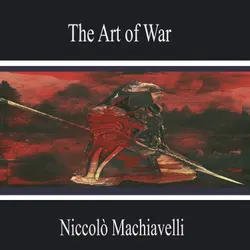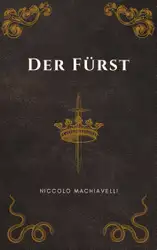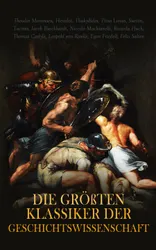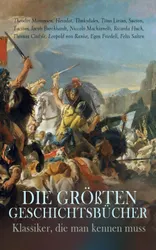Niccolò Machiavelli's 'The Prince' stands as a seminal work in political philosophy, exploring the complexities of power, governance, and human nature. Written in the early 16th century, this treatise adopts a pragmatic and often ruthless approach to statecraft, challenging the moralistic views of its time. Machiavelli's literary style is characterized by directness and clarity, employing historical examples to illustrate his arguments. The work delves into the balances of virtue and vice, the efficacy of deception, and the role of fortune, positioning itself firmly within the context of Renaissance humanism and the tumultuous political landscape of Italy. Machiavelli, born in Florence in 1469, was a diplomat and political thinker deeply influenced by the instability of Italian city-states during his life. His experiences, including imprisonment and exile, fostered a disillusionment with idealistic political theories, prompting him to advocate for realpolitik. 'The Prince' reflects his desire to provide pragmatic advice to rulers, drawn from both classical and contemporary sources, as a means of achieving stability and strength in governance. Recommended for students of political science, history, and philosophy, 'The Prince' invites readers to confront the uncomfortable truths of power dynamics. Its enduring relevance and provocative insights encourage critical reflection on leadership and ethics, making it essential reading for anyone grappling with the complexities of authority and morality in modern contexts.

Il principe - Audiolibro
Niccolò Machiavelli
audiobook
Il Principe
Niccolò Machiavelli
book
Der Fürst - Hörbuch
Niccolò Machiavelli
audiobook
The Prince - Audiobook
Niccolò Machiavelli, Classic Audiobooks
audiobook
The Art of War
Niccolò Machiavelli
audiobookbook
Strategie und Management: Die Hörbuch Box mit Sun Tzu, Machiavelli und Clausewitz : Die Kunst des Krieges, Der Fürst, Vom Kriege: Standard-Werke der Business-Literatur
Sun Tzu, Niccolò Machiavelli, Carl von Clausewitz
audiobook
Leitfaden für weise Herrscher: Die Philosophie des Regierens : Vom Kriege, Selbstbetrachtungen, Der Fürst, Die Generalprinzipien des Krieges, Geschichte der Kriegskunst
Carl von Clausewitz, Friedrich der Große, Benjamin Franklin, Otto von Bismarck, Niccolò Machiavelli, Platon, Marcus Aurelius, Marcus Tullius Cicero, Friedrich Christoph Dahlmann, Karel Čapek, Hans Delbrück
book
Die Kunst der Staatsführung: Regieren mit Weisheit : Die Meisterwerke philosophischer Strategie und Staatskunst: Der Staat, Selbstbetrachtungen, Der Fürst, Die Generalprinzipien des Krieges
Niccolò Machiavelli, Platon, Marcus Aurelius, Marcus Tullius Cicero, Carl von Clausewitz, Friedrich der Große, Benjamin Franklin, Otto von Bismarck, Friedrich Christoph Dahlmann, Karel Čapek, Hans Delbrück
book
Der Fürst - Machiavellis Meisterwerk: Il Principe
Niccolò Machiavelli, Klassiker der, Philosophie Bücher
book
Die größten Klassiker der Geschichtswissenschaft : Der Peloponnesische Krieg, Römische Geschichte, Aus Zwei Jahrtausenden Deutscher Geschichte, Die Französische Revolution
Theodor Mommsen, Herodot, Thukydides, Titus Livius, Sueton, Tacitus, Jacob Burckhardt, Niccolò Machiavelli, Ricarda Huch, Thomas Carlyle, Leopold von Ranke, Egon Friedell, Felix Salten
book
Die größten Geschichtsbücher - Klassiker, die man kennen muss : Der Peloponnesische Krieg, Römische Geschichte, Aus Zwei Jahrtausenden Deutscher Geschichte, Die Französische Revolution
Tacitus, Leopold von Ranke, Theodor Mommsen, Herodot, Thukydides, Titus Livius, Sueton, Jacob Burckhardt, Niccolò Machiavelli, Ricarda Huch, Thomas Carlyle, Egon Friedell, Felix Salten
book
50 Meisterwerke der Philosophie : Metaphysik, Das Gastmahl, Bhagavadgita, Tractatus logico-philosophicus, Kritik der reinen Vernunft, Also sprach Zarathustra, Selbstbetrachtungen von Marcus Aurelius
Ludwig Wittgenstein, Edmund Husserl, Karl Marx, Søren Kierkegaard, Friedrich Nietzsche, Ralph Waldo Emerson, John Stuart Mill, Georg Wilhelm Friedrich Hegel, Friedrich Schelling, Johann Gottlieb Fichte, Immanuel Kant, John Locke, Montesquieu, Jean Jacques Rousseau, David Hume, Gottfried Wilhelm Leibniz, Baruch Spinoza, Konfuzius, Laotse, Platon, Xenophon, Aristoteles, Marcus Tullius Cicero, Seneca, Epiktet, Marc Aurel, Plotin, Thomas von Aquin, Nicolaus von Cues, Erasmus von Rotterdam, Niccolò Machiavelli, Tommaso Campanella, Martin Luther, Giordano Bruno, Samuel von Pufendorf, Abbé Castel de Saint-Pierre, Michel de Montaigne, René Descartes, Francis Bacon, Blaise Pascal
book
